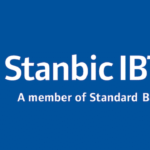Nigerian businesses need to prepare and brace themselves for a highly challenging period ahead as the coronavirus pandemic disrupts day-to-day life and commerce.
This follows the Federal and State Governments’ recent announcements of a set of bold measures to halt the spread of the coronavirus in Nigeria, including travel bans, school closures and limits to the size of public gatherings.
“While these actions are necessary and commendable, they are steering businesses into uncharted territory,” says Dr. Demola Sogunle, Chief Executive, Stanbic IBTC Bank PLC.
Sogunle, in a statement on Monday said, “The operating environment, already difficult following years of lacklustre growth, will become even more challenging in the weeks ahead.”
He added: “As this health and economic crisis unfold, large organisations will have to contend with the challenge of managing complex operations across multiple entities and geographies – each with its own set of measures in place to tackle the pandemic.
“There is now a pressing need for effective risk mitigation and business continuity measures, and these must include partner firms, suppliers and other stakeholders.”
He noted that in numerous industries, supply chains and cash flows are being severely disrupted, particularly for those businesses involved in cross-border trade. “This makes planning more crucial than ever,” he said.
With this in mind, he said, organisations should consider the early loading and planning of payments, as well as intensive cash-flow management and liquidity planning.
“Those businesses that have lending facilities in place should assess whether these can cope with changed or disrupted cash flows,” he said.
Also, he said, businesses involved in cross-border trade can consider measures that reduce the impact on cash flows.
“Letters of credit, for instance, have a lesser impact on cash flows than upfront deposits. And the disruption of physical trade flows might require an alignment of the associated cash flows,” he said.

 Join Daily Trust WhatsApp Community For Quick Access To News and Happenings Around You.
Join Daily Trust WhatsApp Community For Quick Access To News and Happenings Around You.


